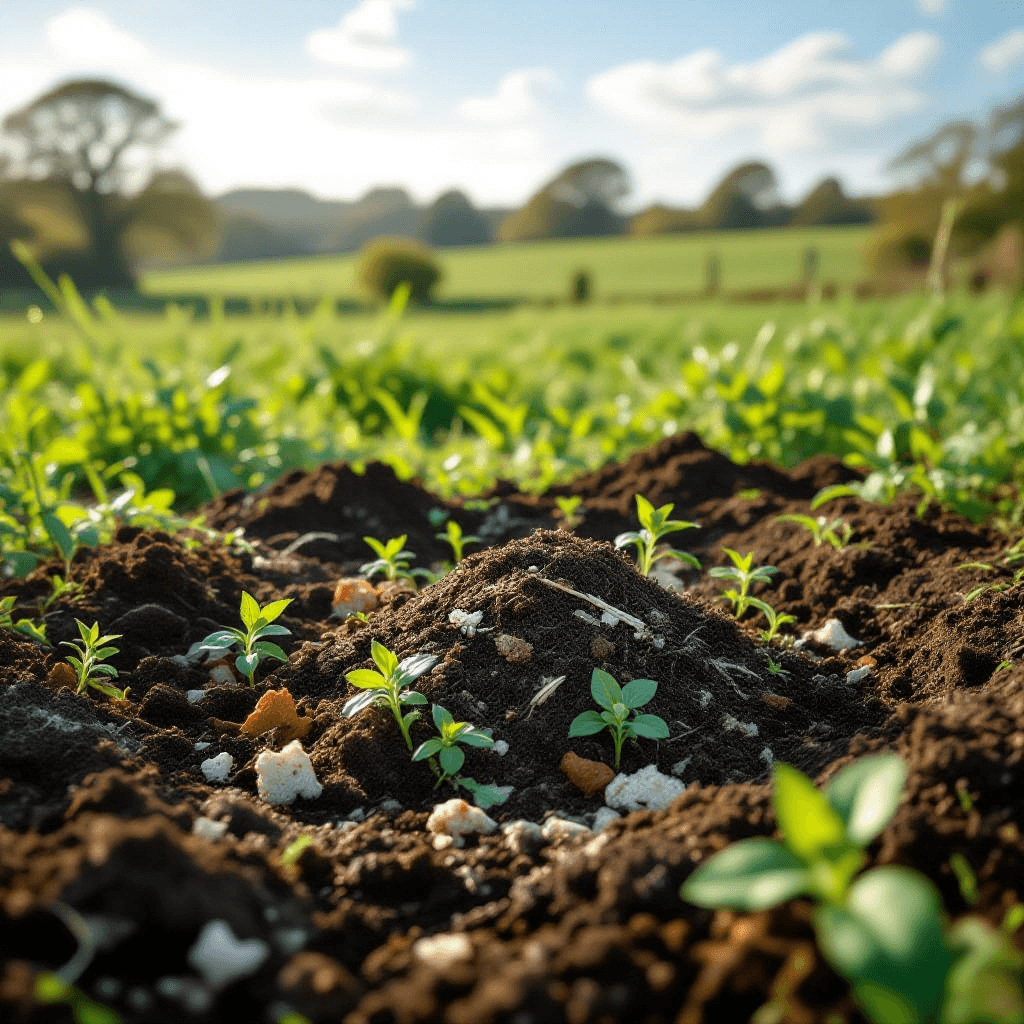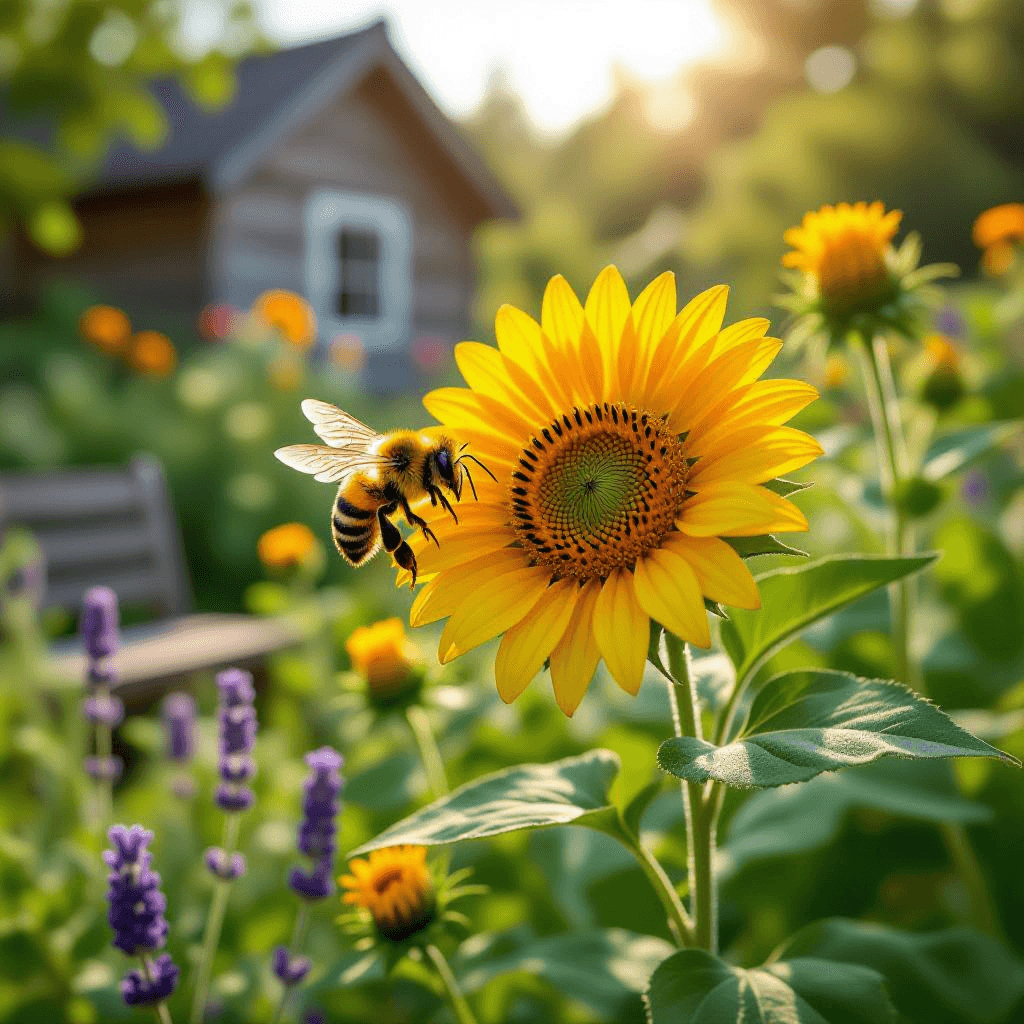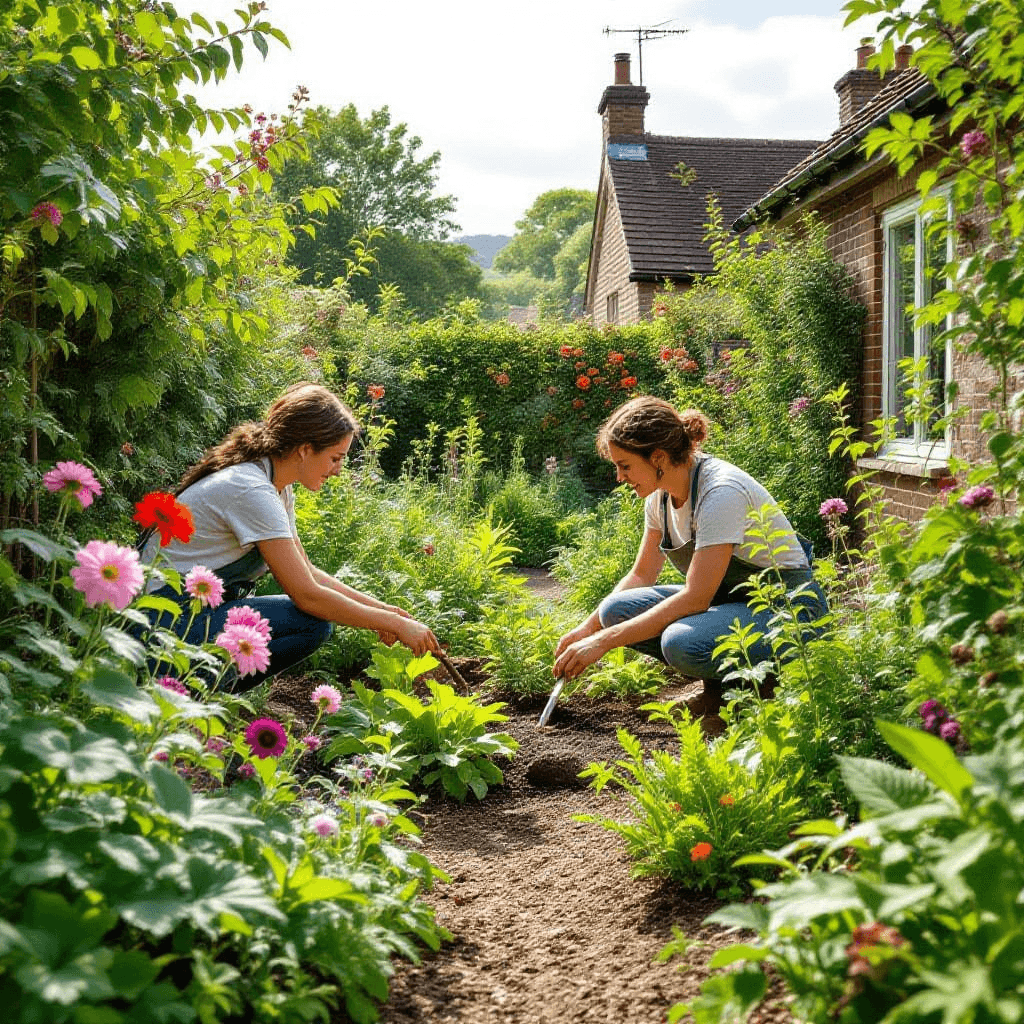Introduction to Composting
Composting is the natural process of recycling organic matter, such as food scraps and yard waste, into a valuable soil amendment known as compost. This practice is increasingly recognized in the UK for its crucial role in sustainable gardening and effective waste management. By transforming what would otherwise become landfill waste, composting significantly reduces the burden on waste disposal facilities while simultaneously enriching soil health.
One of the primary benefits of composting in UK gardens is its ability to improve soil structure and fertility. Compost is rich in essential nutrients, which help support healthy plant growth and enhance overall garden productivity. Additionally, the organic matter in compost improves soil aeration and moisture retention, creating a more hospitable environment for beneficial microorganisms and insects. This not only promotes healthier plants but also fosters biodiversity within the garden ecosystem.
Moreover, composting provides an eco-friendly solution to the challenge of organic waste disposal. As food waste accounts for a large percentage of what is thrown away, embracing composting practices contributes to a more sustainable lifestyle. Home composting can be an effective way to manage kitchen scraps such as vegetable peelings, fruit cores, and coffee grounds, along with garden materials like grass clippings and leaves.
In addition to its environmental effects, composting encourages gardeners to adopt a more mindful approach to resource usage. By becoming aware of the types of materials that can be composted, individuals can actively participate in reducing waste and improving their garden’s soil health. As new gardeners embark on this rewarding practice, they will quickly discover that composting offers an accessible pathway to creating nutrient-rich soil that benefits both their gardens and the planet.
Setting Up Your Composting System
Establishing a composting system in your garden is a rewarding endeavor that contributes to waste reduction and enhances soil quality. The first step involves choosing the appropriate composting method based on your space, waste volume, and personal preferences. Common options include traditional compost bins, compost tumblers, and worm bins. Compost bins are typically stationary and suitable for larger volumes of waste, while tumblers allow for easier mixing and quicker decomposition. Worm bins are ideal for those with limited space and serve to recycle kitchen scraps efficiently.
Once you have selected your composting method, determining the ideal location is crucial. Choose a spot that is accessible, has good drainage, and is somewhat sheltered from extreme weather conditions. A sunny area aids decomposition, while partial shade can help maintain moisture levels. It’s important to ensure that the selected location is convenient for adding food waste and harvesting finished compost.
For effective composting, size, and materials play vital roles. The general rule is to create a compost pile that is at least three cubic feet to maintain sufficient heat for decomposition. When assembling your compost, balance green materials (such as vegetable scraps, grass clippings, and coffee grounds) with brown materials (like dried leaves, cardboard, and wood chips). This balance is key for proper aeration and moisture control, which are essential for the composting process. A good ratio is approximately one part greens to three parts browns.
Monitoring moisture levels is also critical; compost should be damp but not soggy. Regularly aerating your compost, either by turning it or allowing airflow through holes in the bin, enhances decomposition. By following these guidelines, you can establish a productive and sustainable composting system that transforms your food waste into nutrient-rich soil for your garden.
What Can and Cannot Be Composted
Composting is an effective way to recycle organic waste and create nutrient-rich soil for gardens. One of the critical aspects for beginner composter enthusiasts is knowing what materials can be composted and which should be avoided. By including suitable items in your compost pile, you can enhance the decomposition process and produce high-quality compost.
Generally, kitchen scraps are excellent candidates for composting. Fruit and vegetable peels, coffee grounds, eggshells, and leftover grains contribute valuable nutrients to the compost mixture. Additionally, garden waste, such as grass clippings, leaves, and small branches, are highly beneficial. It is advisable to balance “green” materials, which are nitrogen-rich, with “brown” materials, which are carbon-rich, ensuring a healthy carbon-to-nitrogen ratio.
However, not all organic items are suitable for composting. Certain materials should be strictly avoided due to their potential to harm the composting process. Dairy products, for example, attract pests and can produce unpleasant odors as they break down. Similarly, meats and oils can lead to issues with smell and pest infestations, making the compost unusable. Furthermore, foods containing preservatives or artificial ingredients should also be excluded, as these substances can disrupt the natural microbial activity essential for effective composting.
Additionally, certain garden waste items, like diseased plants or weeds with seeds, can introduce pathogens and unwanted seeds into the compost, resulting in potential problems in the garden later. To maximize your composting efforts, it is crucial to familiarize yourself with these guidelines, allowing you to create a thriving compost system while minimizing potential complications. With careful selection of compostable materials, you can significantly enhance the quality of your compost and contribute positively to your garden’s health.
Maintaining Your Compost and Troubleshooting
To ensure a productive composting process, regular maintenance is crucial. Turning the compost pile is one of the key practices that significantly enhances decomposition. Turning involves using a pitchfork or shovel to aerate the compost, allowing oxygen to reach the microorganisms breaking down the organic materials. This should ideally be done every few weeks. Proper aeration not only speeds up the decomposition process but also helps prevent the compost from becoming compacted. A well-aerated pile leads to a more balanced carbon-to-nitrogen ratio, promoting healthier compost.
Moisture level is another vital factor to consider. The compost should be kept damp but not overly wet. If the compost appears dry, it can be beneficial to add water or dry materials such as leaves, while too much moisture can lead to a soggy pile, which may produce foul odors. Keeping a moisture meter handy can help maintain optimal conditions, ensuring the compost is neither too dry nor too wet. Regularly monitoring these factors allows for timely adjustments, leading to a more efficient composting process.
Determining when your compost is ready to use is essential for successful gardening. The compost should look dark and crumbly, resembling rich soil, and should have an earthy aroma. During the final stages of decomposition, identifiable materials such as vegetable scraps should no longer be discernible. Beginners may encounter several common issues. Foul odors can indicate an imbalance of green (nitrogen-rich) and brown (carbon-rich) materials, and may require the addition of more browns. To combat pests, ensure that meat and dairy are excluded from the compost, using nets or boxes to cover piles if necessary. By proactively addressing these challenges, novice composters can create a thriving compost system that yields nutrient-rich soil for their gardens.


